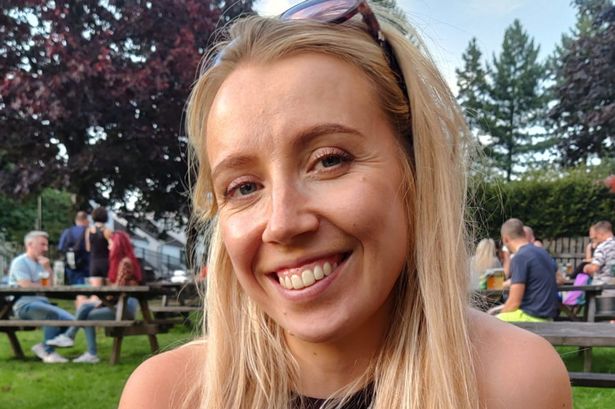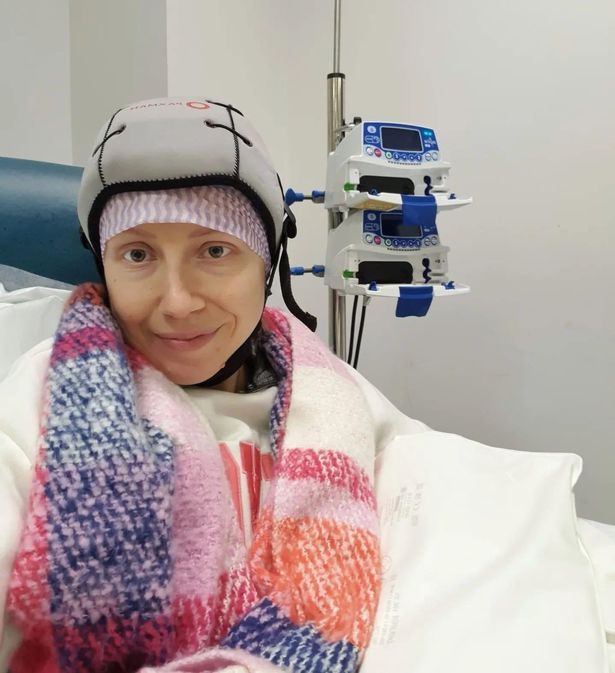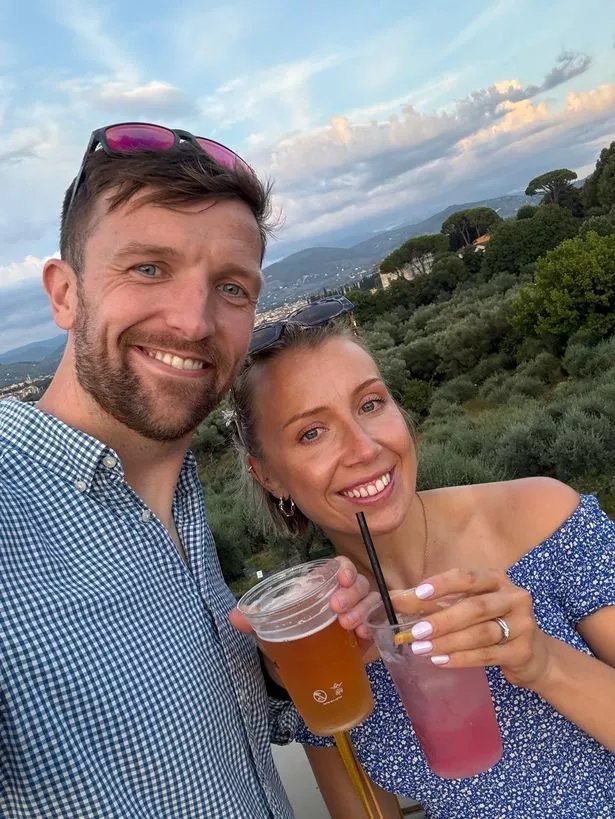Beth Ferguson first noticed a small lump in 2022 but her GP wasn’t concerned.
08:45, 15 Jul 2025Updated 15:58, 16 Jul 2025
 Beth Ferguson was diagnosed with an aggressive form of breast cancer.
Beth Ferguson was diagnosed with an aggressive form of breast cancer.
A Scots teacher who was told it was “highly unlikely” she had cancer because “young people have lumpy boobs” was later diagnosed with aggressive breast cancer.
Beth Ferguson, 30, first noticed a small lump on her left breast in October 2022 but her GP, wasn’t concerned because the lump was smooth and mobile – often thought to be a sign of a cyst or benign lump.
They referred Beth to the local breast clinic anyway, but when she arrived, she was informed it was “nothing to worry about” as “younger people have lumpy boobs“.
However, 10 months on from her GP visit, Beth noticed the lump was growing, and she went back to her surgery, and was referred to Gartnavel Hospital, Glasgow.
A few days after an ultrasound and biopsy, she was finally diagnosed with a triple negative tumour. After 16 rounds of chemotherapy, a breast reconstruction and immunotherapy she was given the all clear in May 2024.
Beth, a physics and maths teacher, from Glasgow, said: “After noticing the lump, I went to my doctor, who said I was fine.
“They referred me to the local breast clinic, and the consultant said it was a cyst and there was nothing to worry about.
“They said I was young, and younger people have lumpy boobs.
“After that, I wasn’t worried; they said if anything changes, or it gets bigger, to come back.”
 Beth was given 16 rounds of chemotherapy, a breast reconstruction and immunotherapy.(Image: SWNS)
Beth was given 16 rounds of chemotherapy, a breast reconstruction and immunotherapy.(Image: SWNS)
Beth was in the shower when she noticed a lump on her left breast.
She said: “It started off small, it gradually got bigger and never really went away.
“I have no family history of breast cancer, so I thought it was unlikely to be anything serious.”
The breast clinic consultant said it was most likely to be a cyst, and nothing to worry about as “younger people have lumpy boobs”.
Beth said: “At that point, I wasn’t worried; it put my mind at ease.
“The consultant wasn’t concerned, as it was small and I was so young, but suggested I return if there were any changes.
“Life went on – I was training for and completed the Boston Marathon and got engaged to my partner in New York.”
In August 2023, just before the start of the new school year, Beth went back to medics and was told she had a large, aggressive triple negative tumour.
Beth said: “Looking back, I was a bit numb to be honest, you almost don’t believe it because I felt so healthy and fit.
“It was the healthiest I have ever been, it was such a strange feeling to be so well but have such a terrible illness.”
Beth decided to freeze her eggs as she was going to be put on “induced menopause” to protect her ovaries during treatment.
 Beth was engaged to her partner in New York just before she was diagnosed. (Image: SWNS)
Beth was engaged to her partner in New York just before she was diagnosed. (Image: SWNS)
In October 2023, Beth started chemotherapy – which ended in March 2024 – and immunotherapy was completed in November 2024.
Beth said: “I largely coped well with the side effects and stayed very active between treatments.
“I continued my marathon training, I went to the gym, and I was still working for the first few months.
“One of the worst side effects was that I was put on induced menopause.
“They shut down my ovaries to protect them – I went into menopause overnight.”
In April 2024, Beth underwent reconstruction surgery on her left breast.
She said getting the all clear was “a strange feeling”.
“I don’t think it is what I imagined,” she said.
“I have struggled with the after effects of how to move on with my life.
“Although it was great news, and everyone around me was happy – it was the start of anxiety for me.”
Beth is now is now supporting new research funded by Breast Cancer Now and Secondary1st, which is hoping to develop a more targeted treatment for people with triple negative breast cancer.
Professor Seth Coffelt at the University of Glasgow has been awarded £399,670 to fund research that will help further understanding of a type of immune cell that can kill triple negative breast cancer cells and stop them spreading.
Triple negative breast cancer is also more likely than most other breast cancers to return or spread within five years following diagnosis.
Beth said: “I appreciate that the research is being funded at the Beatson Institute.
“It was the team in Glasgow which treated me and cared for me, with everything I have been through.
“Everyone in the NHS and the Beatson was amazing – I received really great care there.
“It’s so important that we have more research into triple negative breast cancer, it’s what keeps me going every day – the hope that researchers will find other targeted therapies in time for people like me.”
